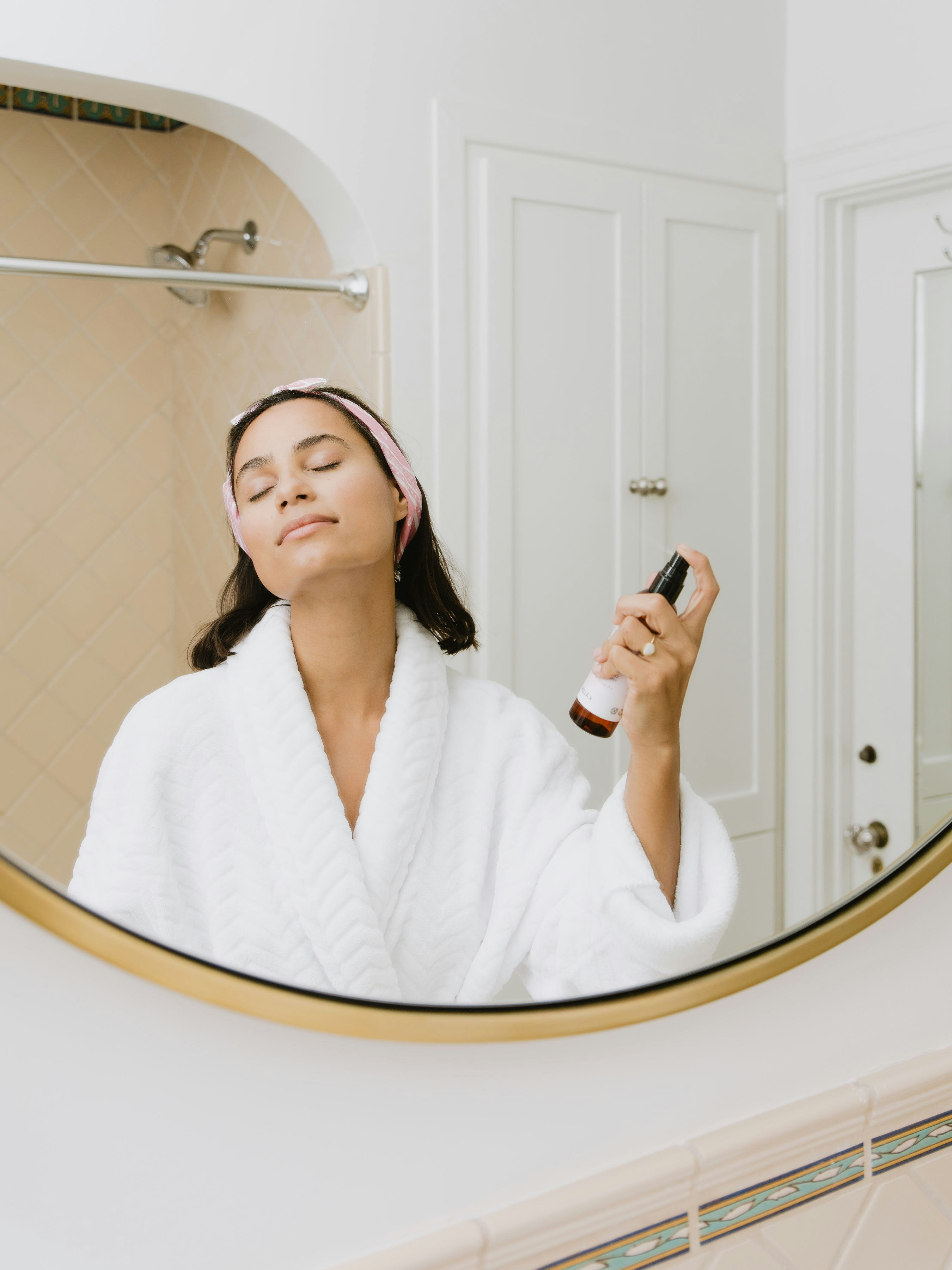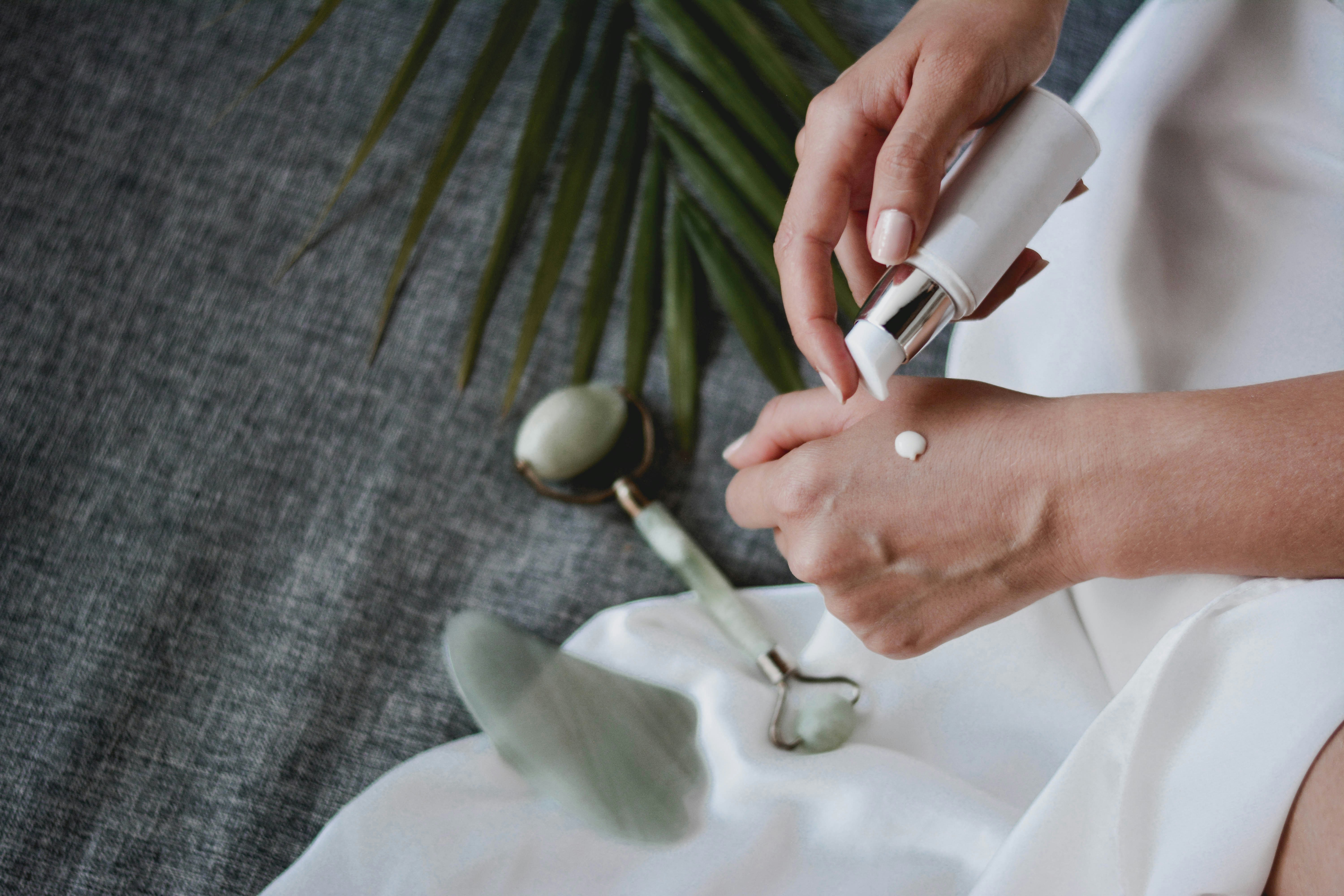Do you dream of having flawless, radiant skin that reminds you of delicate porcelain? If so, look no further! This article is here to help you achieve just that. From simple daily habits to effective skincare routines, we’ll guide you through the steps to attain porcelain skin that will make heads turn. Get ready to unlock the secrets to a complexion that glows with luminosity and exudes a sense of timeless beauty.

Developing a Skincare Routine
Identify your Skin Type
One of the first steps in developing a skincare routine is to identify your skin type. Is your skin oily, dry, combination, or sensitive? Understanding your skin type will help you choose the right products and treatments that cater to its specific needs.
Cleanse Regularly
Regularly cleansing your face is essential for maintaining healthy and clear skin. Choose a gentle cleanser that suits your skin type, and make it a habit to cleanse your face twice a day – in the morning and before bed. Cleansing helps remove dirt, oil, and impurities that can clog your pores and lead to breakouts.
Exfoliate Weekly
In addition to regular cleansing, it’s important to exfoliate your skin once a week. Exfoliation helps remove dead skin cells, revealing a fresh and radiant complexion. However, be sure not to over-exfoliate, as this can cause irritation and damage to your skin. Choose a gentle exfoliator that suits your skin type and follow the instructions on the product.
Hydrate with Moisturizers
Hydrating your skin is a crucial step in any skincare routine. After cleansing and exfoliating, apply a suitable moisturizer to lock in moisture and keep your skin hydrated throughout the day. Look for moisturizers that are lightweight and non-comedogenic, meaning they won’t clog your pores. Remember to choose a moisturizer that matches your skin type for optimal results.
Apply Sunscreen Daily
Protecting your skin from harmful UV rays is vital to maintain its health and prevent premature aging. Apply a broad-spectrum sunscreen with an SPF of at least 30 every day, even on cloudy days. Be sure to reapply every two hours, especially when spending time outdoors. Sunscreen not only prevents sunburn but also protects against sun damage and reduces the risk of developing skin cancer.
Maintaining a Healthy Diet
Eat a Balanced Diet
A balanced diet plays a significant role in achieving and maintaining healthy skin. Include a variety of fruits, vegetables, whole grains, lean proteins, and healthy fats in your meals. These provide essential vitamins, minerals, and antioxidants that promote a youthful and radiant complexion.
Include Antioxidant-Rich Foods
Antioxidants help combat free radicals in the body, which can damage your skin cells and result in premature aging. Incorporate antioxidant-rich foods into your diet such as berries, leafy greens, citrus fruits, and nuts. These foods are not only delicious but also provide your skin with the nutrients it needs to stay healthy and glowing.
Consume Healthy Fats
Healthy fats, such as those found in avocados, salmon, and olive oil, are essential for maintaining supple and hydrated skin. Omega-3 fatty acids, in particular, contribute to the overall health and appearance of your skin. Incorporate these fats into your diet to improve skin elasticity and reduce inflammation.
Stay Hydrated
Drinking an adequate amount of water is crucial for proper hydration and overall skin health. Aim to drink at least eight glasses of water a day, more if you exercise or live in a dry climate. Staying hydrated helps flush out toxins, keeps your skin moisturized, and promotes a clearer complexion.

Avoiding Harmful Habits
Protect Your Skin from UV Rays
Excessive sun exposure can lead to various skin problems, including sunburn, premature aging, and an increased risk of skin cancer. Protect your skin by seeking shade, wearing protective clothing, and using sunscreen. Additionally, avoid outdoor activities during peak hours when the sun’s rays are strongest.
Quit Smoking
Smoking tobacco not only damages your internal health but also has a detrimental effect on your skin. Smoking accelerates the aging process, causes wrinkles, and reduces the production of collagen. Quitting smoking is one of the best things you can do to improve your overall health and achieve healthier-looking skin.
Limit Alcohol and Caffeine Intake
Alcohol and caffeine can dehydrate your skin, making it appear dull and dry. Limit your intake of alcoholic beverages and caffeinated beverages like coffee and soda. Instead, opt for hydrating alternatives like herbal teas and infused water to keep your skin looking fresh and vibrant.
Avoid Harsh Chemicals
Harsh chemicals found in certain skincare products can strip away your skin’s natural moisture and disrupt its balance. Avoid products that contain harsh sulfates, alcohol, and synthetic fragrances. Instead, choose products with natural and gentle ingredients that nourish and protect your skin.
Using Skincare Products
Choose Gentle Cleansers
When selecting a cleanser, opt for gentle formulas that won’t strip away your skin’s natural oils. Harsh cleansers can disrupt your skin’s pH balance and leave it feeling dry and irritated. Look for cleansers that are specifically designed for your skin type, whether it’s oily, dry, combination, or sensitive.
Incorporate Serums and Essences
Serums and essences are highly concentrated products that target specific skin concerns. These products contain active ingredients that penetrate deep into the skin, addressing issues such as fine lines, dark spots, and uneven texture. Incorporate serums and essences into your skincare routine after cleansing and before moisturizing for maximum effectiveness.
Use Facial Masks
Facial masks are a great way to give your skin an extra boost of hydration, nourishment, or deep cleansing. Choose masks that suit your skin type and concerns, whether it’s soothing masks for sensitive skin or moisturizing masks for dry skin. Use masks once or twice a week to enhance the overall health and appearance of your skin.
Consider Retinol
Retinol is a highly effective ingredient in skincare known for its anti-aging properties. It helps reduce the appearance of fine lines, wrinkles, and hyperpigmentation. If you’re concerned about signs of aging, consider incorporating retinol into your skincare routine. Start with a lower concentration and gradually increase as your skin adapts to it.
Include Vitamin C Products
Vitamin C is a powerful antioxidant that brightens the skin, fades dark spots, and promotes collagen production. Look for skincare products that contain vitamin C, such as serums or moisturizers, to improve your skin’s overall appearance and texture. Use vitamin C products in the morning to enjoy their full benefits throughout the day.
Try Natural Remedies
In addition to skincare products, natural remedies can complement your skincare routine. Aloe vera gel can soothe irritated skin and reduce inflammation, while tea tree oil has antibacterial properties that can help with acne-prone skin. Honey and lemon can be used as a natural face mask to brighten and hydrate the skin. Turmeric paste has anti-inflammatory properties and can help even out the skin tone. However, it’s important to do a patch test before trying any natural remedies to ensure you don’t have any adverse reactions.

Getting Adequate Sleep
Establish a Consistent Sleep Schedule
Maintaining a consistent sleep schedule is essential for ensuring you get enough restorative sleep. Aim for seven to nine hours of sleep each night and try to go to bed and wake up at the same time every day. This consistency helps regulate your body’s internal clock and promotes healthier skin.
Create a Relaxing Bedtime Routine
Establishing a relaxing bedtime routine signals to your body that it’s time to unwind and prepare for sleep. This can include activities such as reading a book, practicing meditation or deep breathing exercises, or taking a warm bath. Avoid screens and stimulating activities before bed, as they can interfere with your ability to fall asleep.
Invest in a Good Pillow and Sheets
The quality of your sleep can also be influenced by the comfort of your bed. Invest in a good pillow and sheets that provide adequate support and comfort. Opt for materials that are gentle on the skin, such as silk or satin, to minimize friction and prevent skin irritation.
Keep Your Bedroom Cool and Dark
Creating a sleep-friendly environment is crucial for getting quality rest. Keep your bedroom cool, as a lower temperature promotes better sleep. Use blackout curtains or an eye mask to block out any unwanted light that can disrupt your sleep cycle. By ensuring your bedroom is cool and dark, you’ll create an optimal environment for restful sleep.
Managing Stress Levels
Engage in Regular Exercise
Regular physical activity is not only beneficial for your overall health but also helps manage stress levels. Engaging in activities like walking, jogging, yoga, or dancing releases endorphins, which are natural mood boosters. Find an exercise routine that you enjoy and incorporate it into your daily or weekly schedule.
Practice Stress-Relief Techniques
Stress can take a toll on your skin and overall well-being. Practice stress-relief techniques such as deep breathing exercises, meditation, or mindfulness to help calm your mind and reduce stress levels. Find activities that help you relax and make time for them regularly.
Prioritize Self-Care
Taking care of yourself is important for maintaining a healthy mind and body. Set aside time each day for self-care activities that make you feel rejuvenated, whether it’s taking a bubble bath, enjoying a hobby, or indulging in a beauty treatment. Prioritizing self-care allows you to recharge and better manage stress.
Seek Support from Loved Ones or Professionals
If stress becomes overwhelming, don’t hesitate to reach out to loved ones or professionals for support. Talking about your feelings with someone you trust can provide a fresh perspective and help alleviate stress. Additionally, consider seeking help from a therapist or counselor who specializes in stress management.
Taking Care of Your Overall Health
Stay Active and Exercise Regularly
Aside from managing stress, regular physical activity has numerous health benefits. Engage in activities that get your body moving, such as walking, cycling, swimming, or taking fitness classes. Regular exercise improves blood circulation, boosts your immune system, and enhances overall well-being.
Avoid Excessive Alcohol Consumption
Excessive alcohol consumption can have negative effects on your skin and overall health. It can lead to dehydration, inflammation, and accelerated aging. Limit your alcohol intake and practice moderation to maintain a healthy lifestyle and promote radiant skin.
Quit Smoking
Smoking not only harms your lungs but also impacts the health and appearance of your skin. It causes wrinkles, dullness, and an uneven skin tone. Quitting smoking is one of the most significant steps you can take to improve your skin’s health and maintain a youthful appearance.
Manage Chronic Health Conditions
If you have chronic health conditions, it’s important to manage them properly. Conditions such as eczema, psoriasis, or rosacea can affect the health and appearance of your skin. Work with healthcare professionals to develop a treatment plan and follow their recommendations to keep your skin as healthy as possible.
Ensuring Proper Hydration
Drink Sufficient Water
Proper hydration is essential for maintaining healthy skin. Make sure to drink enough water every day to keep your skin hydrated from within. Water helps flush out toxins, keeps your skin plump and supple, and reduces the appearance of fine lines and wrinkles.
Limit Intake of Dehydrating Beverages
Certain beverages, such as alcohol, caffeine, and sugary drinks, can dehydrate your body and negatively impact your skin. Limit your consumption of these beverages and opt for hydrating alternatives like water, herbal teas, or infused water. Your skin will thank you for the extra hydration.
Using Natural Remedies
Apply Aloe Vera Gel
Aloe vera gel has soothing and anti-inflammatory properties that can help calm irritated skin. Apply a thin layer of pure aloe vera gel to irritated areas or sunburned skin for immediate relief. The gel also helps moisturize and hydrate the skin, promoting a healthier complexion.
Use Tea Tree Oil
Tea tree oil is a natural antiseptic with antimicrobial properties, making it a great remedy for acne-prone skin. Dilute a few drops of tea tree oil with a carrier oil, such as jojoba or coconut oil, and apply it to affected areas. It helps kill acne-causing bacteria and reduces inflammation.
Try Honey and Lemon
A combination of honey and lemon is known for its brightening and hydrating properties. Mix equal parts honey and freshly squeezed lemon juice and apply it to your face as a mask. Leave it on for about 15 minutes, then rinse off with warm water. This DIY mask can help improve your skin’s texture and give it a healthy glow.
Use Turmeric Paste
Turmeric has anti-inflammatory and antioxidant properties, making it a popular ingredient in skincare. Mix turmeric powder with water or aloe vera gel to create a paste, then apply it to your face as a mask. Leave it on for about 10-15 minutes, then rinse off. Turmeric can help reduce redness, promote an even skin tone, and provide a natural radiance to your complexion.
Seeking Professional Help
Consult a Dermatologist
If you’re struggling with persistent skin concerns or have specific questions about your skin, it’s a good idea to consult a dermatologist. A dermatologist can assess your skin, identify any underlying issues, and recommend suitable treatments or skincare products tailored to your needs.
Consider Professional Skincare Treatments
Professional skincare treatments can provide targeted solutions for various skin concerns. Treatments like facials, chemical peels, microdermabrasion, or laser therapy can address specific issues such as acne, wrinkles, hyperpigmentation, or uneven skin texture. Consult with a skincare professional to determine which treatments are best suited for your skin type and concerns.
By following these comprehensive skincare tips and adopting healthy lifestyle habits, you can achieve and maintain porcelain-like skin. Remember that everyone’s skin is unique, so it’s important to listen to your skin’s needs and adjust your routine accordingly. With consistency and care, you’ll be well on your way to achieving healthy and radiant skin.

